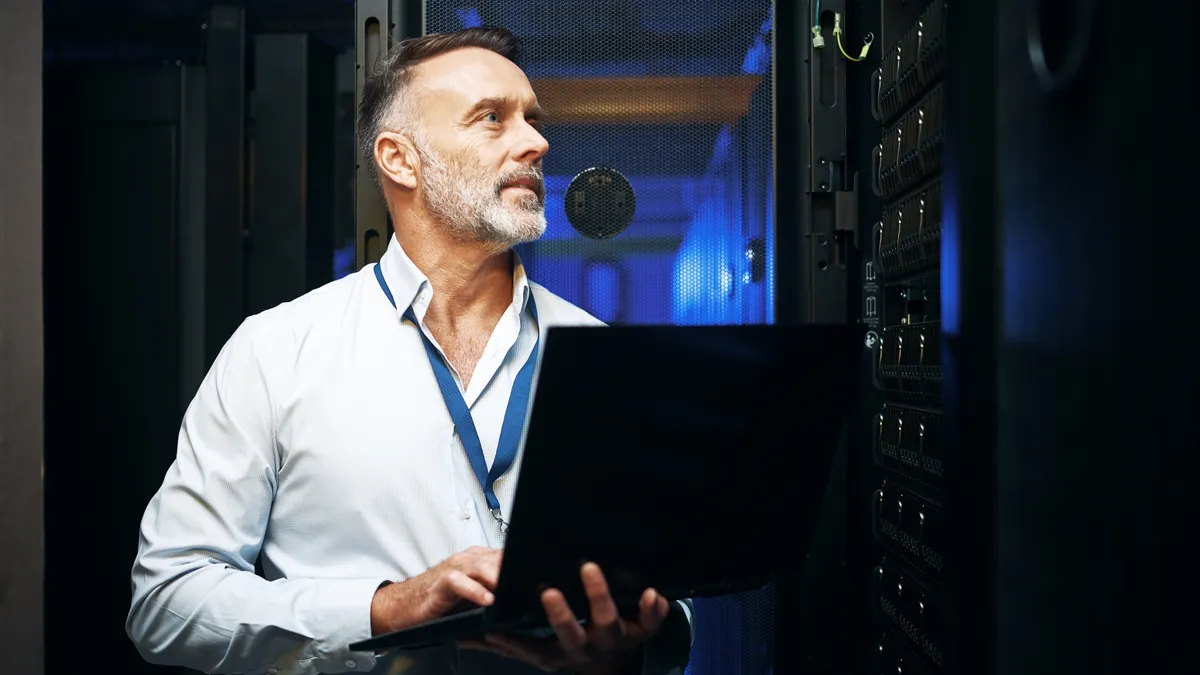Dive Brief:
- CIOs are the most common member of the C-suite to come from outside their organization, with nearly 3 in 5 CIOs taking the role as external hires, according to a review of Fortune 500 company C-suites by analyst firm Spencer Stuart.
- Almost half of CIOs joined their current firm from a different industry, signaling enterprise interest in adding technology perspectives from outside their immediate realm.
- The report also found CIOs have an average tenure of 4.7 years, in line with the average C-suite tenure of 4.6 years. By contrast, the average Fortune 500 CEO stays in the role for seven years.
Dive Insight:
Companies across industries seek the latest and greatest technology to support operations. To outpace competitors in the digital race, businesses often look to the tech sector for the kind of leadership they need.
Among CIOs coming from different industries, one-third joined their current firm after working in technology, media or communications. This indicates a desire to include outside perspectives into the fold, said Ed Stadolnik, consultant at Spencer Stuart.
"A number of times when companies go external they're looking for someone with a new, fresh perspective that they may not have within their own organization," said Stadolnik. "We also find at times that companies are undergoing a significant transformation, and for that transformation the in-house technology capability simply isn't there."
Outside hires can also support the development of in-house leaders who need to develop a specific skill set before ascending to the C-suite, Stadolnik said.
"No one situation is the same, but that outside perspective is definitely something that's sought out," he said.
CIOs coming into a new organization will be tasked with enhancing the company's operations with technology. In 2024, companies expect CIOs to improve customer or citizen experiences, equipping them with larger budgets for data analytics and cloud to do so, according to Gartner.
Large technology leaps can also influence a company's decision to look outside its own industry in search of CIO candidates.
Boards of directors expect incoming CIOs to bring proactive ideas and solutions that leverage new technologies, such as generative AI and other digital solutions, to better serve customers and employees, according to Stadolnik.
"The leading CIOs, and the CIOs that are most sought-after, are the ones that bring those solutions to the table," Stadolnik said.













